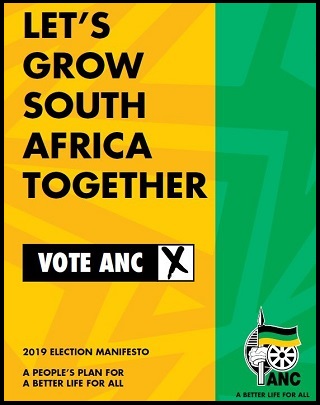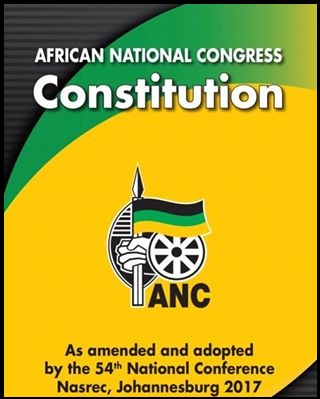Many economists, business people and political commentators state as an empirical fact that investment in the South Africa (SA) economy is plummeting and that this is because of “bad” economic policy or a lack of co-ordination amongst the Economic Departments such as Trade and Industry, Economic Development, National Treasury and others. Most recently, billionaire wine-farm owner Koos Bekker commented that “the biggest need is to develop a coherent economic policy and to get everyone to sing to the same hymn sheet. Foreign investors need to take away a consistent message: we want your money, we want you to create jobs in this country, come join us and we’ll look after you”.
Mr Bekker is at least partly right, a consistent message is indeed important for both foreign and domestic investors, and of course South Africa does compete with many other countries for investment. This need for co-ordination was identified some years back already and is partly why Government is structured into “clusters”.
The Economic Sectors, Employment and Infrastructure Development Cluster (ESEIDC) for example, brings together 25 Departments which have a role to play in economic policy. This Cluster processes all economic policy, legislation and strategy issues, first at Directors-General, Ministers, and Cabinet Committee level before being presented to the full Cabinet for consideration.
Nevertheless, where many economic policy commentators really seem to lose the plot is their presumption – often without reference to data – that investment levels in South Africa have been, or are declining massively.
Given that the vast majority of both domestic and foreign investors proactively contact the Department of Trade and Industry (the dti) – to apply for incentives, obtain IPAP support, licensing advice, and a host of other Government assistance – the dti is uniquely positioned to provide an assessment of the investment environment based on the actual investments taking place on the ground.
It is this assessment, analysis of the official data, and our many interactions with investors that lead us to confidently dispute the view that South Africa’s investment performance has been ‘dismal’ or ‘disappointing’.
At the broad level, foreign direct investment (FDI) inflows to South Africa doubled between 2012 and 2013, reaching an impressive US$8.1 billion in 2013. Data for 2014 is not yet available but early indications are that FDI levels may have moderated only slightly in 2014. South Africa’s investment potential has also been assessed by the global consulting group AT Kearney which in July 2014, announced that South Africa had jumped 2 places to 13th on its Foreign Direct Investment Confidence Index. This Index ranks South Africa as the 13th most attractive destination for FDI across 25 leading economic powerhouses and places us ahead of developed countries such as Switzerland, Spain, Japan and Italy.
In addition, International Investment Initiative director at the World Trade Institute Dr Stephen Gelb says if one looks at the number of firms investing in South Africa, his research shows that more than 130 foreign firms either entered South Africa or expanded their investments during 2013. Another way of looking at this is that more than two foreign firms invested or expanded their investment in South Africa every single week of the year! It is therefore no surprise that a number of international organisations have recognised the economic opportunities in South Africa and the diligence with which Government has marketed the country to foreign investors. This recognition includes the Investment Promotion Unit of the dti being recognised by UNCTAD as global winner for attracting investments in sustainable development.
Shifting focus to domestic investment, Figure 11 below shows South Africa’s performance over the last few years which is still influenced by the lingering effects of the Global Financial Crisis. The values are in constant Rands so as to strip out the effect of inflation and we see that domestic investment fell by a marginal 0.4% in 2014 compared to 2013, while the overall 5-year trend is unambiguously upward. That the popular press has sought to portray such a small decline in 2014 as a crisis suggests that other agendas are at play.
Some commentators have argued that multinational corporations no longer see South Africa as an attractive investment destination. Yet, in 2014 Unilever opened its new, R1.4 billion Indonsa plant in KwaZulu-Natal – one of this multinational’s largest investments anywhere in the world. Next month (June 2015) Unilever will open its multi-billion rand investment in its Khanyisa factory in Boksburg producing Omo, Skip and Handy Andy. Similarly in May 2014 Mercedes Benz launched its R5.4 billion investment to produce the new C-Class.
In the COEGA Industrial Development Zone (IDZ), President Zuma opened the First Automotive Works (FAW) assembly plant on the 10th July 2014 while Iveco invested R800 million to produce buses for Putco Commuter Transport Company. In renewable energy, Jinko Solar, a global leader opened its factory in Epping, Western Cape with an investment of R60 million.
Meanwhile, leading South African companies such as Mondi, Sappi, Aspen, Grindrod, PG Glass have continued to invest in local plants and factories, supported by the incentives provided by the dti.
These investments represent a small fraction of the foreign and domestic investments which are being made in South Africa on a daily basis. The opening of these plants and factories reveal the true investment opportunities available in South Africa in concrete terms.
These success stories have not made us complacent. We must continue to improve our investment environment so as to create the volume of jobs required to half unemployment as Government has committed to. Government must diligently implement the 9-Point Plan announced by President Zuma in the State of the Nation speech earlier this year, and we must continue to ensure that we co-ordinate our economic policy interventions. If radical socio-economic transformation and inclusive growth are our imperatives then we must not allow ourselves to be diverted from the pursuit of structural change in South Africa’s economy.





